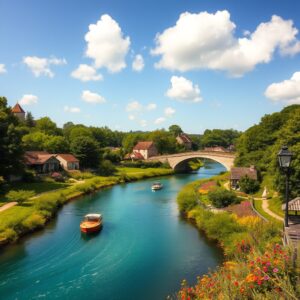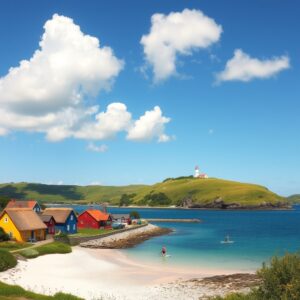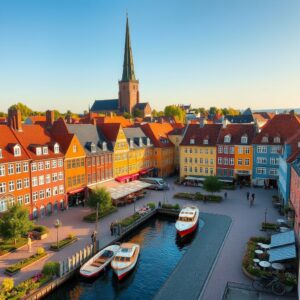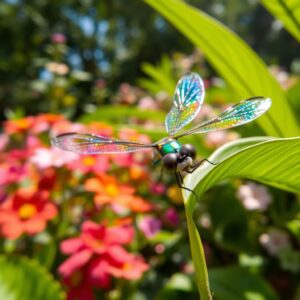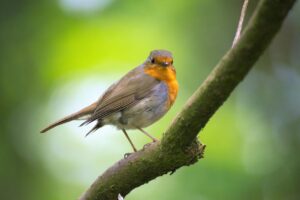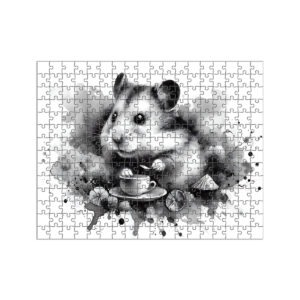
Explore & Play
Discover interesting topics and solve the accompanying crossword puzzle.
Islander Crossword | Islander Cultures and History
Table of Contents
Islander Crossword
You can either fill in the crossword puzzle directly on this page or click the button in the bottom right corner to print it for free.
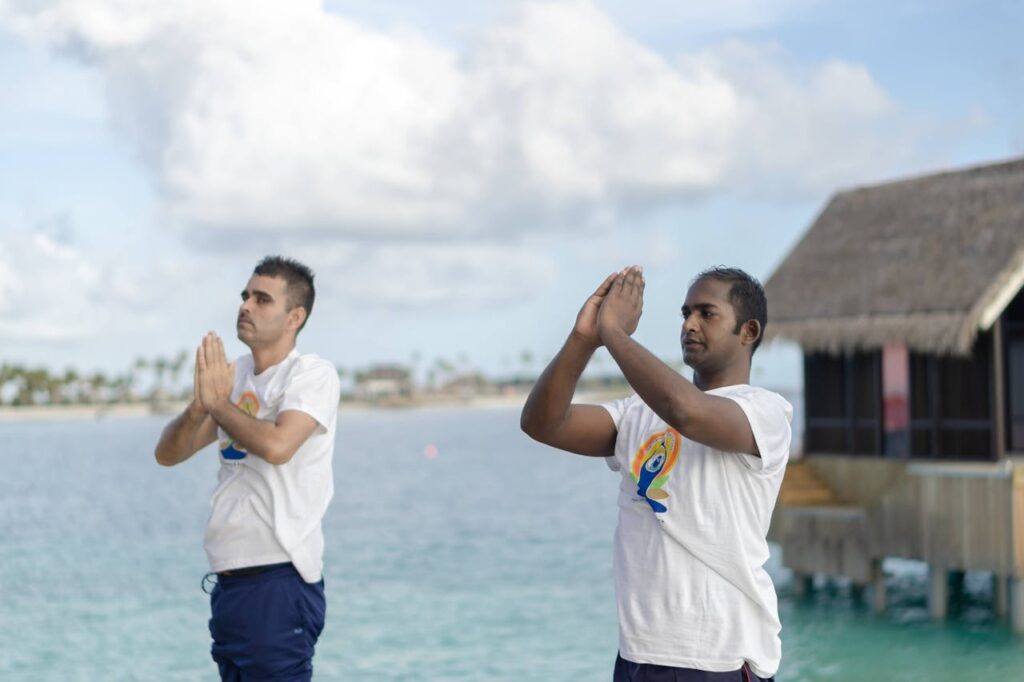
Islanders and Their Impact on Global Culture and History
Islanders from various corners of the world, whether from the tropical Pacific or the rugged Mediterranean, have profoundly shaped global culture and history. From their impressive navigation skills and rich artistic traditions to their critical roles in global political movements, islander communities have consistently demonstrated their influence on the world stage. This article delves into how islanders’ cultural traditions, art, history, and innovations have left lasting legacies across the globe. We will also explore the islander crossword puzzle to learn more about different islander groups and their impacts.
1. The Role of Islander Communities in Shaping Global Identity
Islanders have contributed significantly to the global identity, influencing everything from cultural practices to the arts and sciences. Their unique geography and history have cultivated distinctive ways of life that have inspired and enriched global culture. In this section, we will explore the profound impact islander communities have had on shaping identity and global culture.
1.1 The Polynesians: Navigators and Cultural Ambassadors
The Polynesians, renowned for their navigation skills, have long been considered some of the greatest seafarers in human history. Centuries before modern navigation tools, the Polynesians managed to travel vast distances across the Pacific Ocean, reaching distant islands such as Hawaii, New Zealand, and Easter Island. Their exceptional seafaring abilities not only connected various island groups but also played a critical role in the cultural exchange between distant cultures.
The Polynesian impact extends far beyond navigation. Their traditions, including unique forms of music, dance, and art, have made their mark on global culture. The Hawaiian hula dance, for instance, is now recognized worldwide, influencing dance traditions across cultures. Similarly, Polynesian motifs and designs, such as the traditional tattoo art, have found their way into modern fashion, demonstrating the lasting influence of Polynesian aesthetics.
1.2 The Fijians: A Blend of Tradition and Modern Influence
Fijians, with their deep-rooted traditions, have made significant contributions to art, culture, and even modern political discourse. Located in the heart of the South Pacific, Fiji has developed a rich cultural tapestry that blends traditional practices with modern influences. Fijian architecture, art, and music are known for their beauty, with intricate patterns reflecting both natural surroundings and cultural stories.
In recent years, Fiji has also made strides in political and economic development. As one of the more developed island nations in the Pacific, Fiji has become a regional leader, contributing to peacekeeping missions and climate change discussions. Fijian art and cultural expressions have garnered international recognition, with traditional Fijian weaving and woodworking becoming highly sought after in global markets.
1.3 The Maoris: Guardians of New Zealand’s Heritage
The Maori people, the indigenous Polynesian group of New Zealand, continue to shape the nation’s identity through their language, traditions, and art. The Maori language, once in danger of disappearing, has experienced a revival over the past few decades. Today, Maori is taught in schools, and traditional songs and chants are commonly heard during public ceremonies, helping to keep the culture vibrant.
Maori art, particularly their famous tattoos (moko), continues to hold great cultural significance, representing personal identity and social status. Moreover, the Maori people’s connection to the land and nature has greatly influenced New Zealand’s environmental policies. The Maori concept of “whenua,” which emphasizes respect and stewardship of the land, has played a crucial role in shaping the country’s commitment to environmental preservation.
2. Islander Contributions to Art, Music, and Literature
The cultural output of islanders, from art to music, has influenced global artistic movements and continues to be celebrated worldwide. Whether it’s the vibrant sounds of the Caribbean or the intricate designs of Pacific Island art, islanders have made substantial contributions to the arts. In this section, we explore the impact of islanders on global art, music, and literature.
2.1 From the Caribbean to the World: The Influence of Islander Music
The vibrant sounds of the Caribbean have reverberated across the globe, shaping musical genres like reggae, salsa, and calypso. The genre of reggae, with its roots in Jamaica, became an international sensation, largely thanks to artists like Bob Marley. Reggae’s distinctive rhythm and socially conscious lyrics captured the global imagination and spread far beyond the Caribbean.
Caribbean music has not only influenced popular music but also contributed to the development of global dance forms. Salsa music from Cuba and Puerto Rico, for instance, has become a worldwide dance sensation, while calypso music has influenced artists in the United States and beyond. The Caribbean’s musical contributions have created lasting cultural bridges between continents.
2.2 Art Nouveau and the Islander Aesthetic: The Global Reach
Island cultures, particularly those of the Mediterranean and Pacific regions, have inspired global movements like Art Nouveau. The flowing lines and natural motifs characteristic of Art Nouveau have been heavily influenced by the natural landscapes and traditional island art from places like Bali and Sardinia. The intricate floral patterns and vibrant colors seen in island art have shaped Western design movements, bringing a touch of the exotic into European and American art.
Art Nouveau, with its emphasis on organic forms, owes much of its aesthetic to islander artistry, particularly the stylized representations of nature found in Polynesian art. This cross-cultural exchange has left a lasting impact on art and design, shaping the decorative arts in both the 19th and 20th centuries.
2.3 Literature and Storytelling: Islanders’ Oral Traditions
Islanders have long used storytelling to preserve their histories, legends, and traditions, contributing greatly to the literary world. The oral traditions of island cultures, such as the Maori and Samoan, have been passed down through generations and remain central to their cultural identity.
These oral traditions have also influenced the broader world of literature. The stories of islanders often reflect themes of heroism, nature, and the cosmos, which have inspired writers and poets around the world. Notable islander authors, such as the Fijian-born author Epeli Hau’ofa, have written about the challenges and beauty of island life, shedding light on the experiences of island communities to a global audience.
3. Islanders and Their Cultural Contributions to Global History
Throughout history, islanders have not only contributed to cultural practices but have also played pivotal roles in global political, social, and economic movements. In this section, we explore the historical impact of islanders, from the Vikings to modern-day island leaders, who have shaped global events.
3.1 The Vikings: Islanders Who Shaped the World
The Vikings, hailing from the rugged island nation of Iceland, played a crucial role in shaping Europe’s medieval history. These seafaring warriors and explorers not only raided parts of Europe but also established settlements in the British Isles, Greenland, and North America, leaving a lasting legacy of exploration.
In addition to their conquests, the Vikings’ contributions to governance, law, and trade were significant. Iceland’s early form of democratic governance, the Althing, established in 930, is one of the oldest parliaments in the world. Viking exploration and settlement laid the foundation for the modern world’s understanding of geography and trade networks.
3.2 Islanders and the Spread of Christianity: The Role of the Irish and the Polynesians
Christian missionaries from island nations like Ireland and Polynesia helped spread the faith to far-reaching parts of the world. Irish monks, such as St. Patrick, were instrumental in the spread of Christianity across Europe during the early Middle Ages. Their missionary work, which included the establishment of monasteries, played a key role in the Christianization of Britain and much of Western Europe.
Similarly, Polynesian missionaries brought Christianity to the Pacific Islands, forever altering the region’s cultural landscape. The spread of Christianity by islanders is a testament to their role as global cultural ambassadors, bridging diverse cultures through religious teachings.
3.3 Islanders in the Fight for Independence: From the Caribbean to the Pacific
Islanders have fought for their independence, leading movements that have inspired change around the world. In the Caribbean, island nations such as Cuba, Haiti, and Jamaica led revolutions that not only gained them independence but also influenced global movements for freedom and self-determination.
In the Pacific, island nations like Fiji and Samoa were at the forefront of anti-colonial struggles, with their leaders advocating for political autonomy and social justice. These independence movements have inspired similar efforts in other parts of the world, demonstrating the strength and resilience of island communities.
4. The Islander Way of Life: Sustainability and Environmental Stewardship
Islander communities have developed sustainable ways of life, rooted in respect for nature, that are increasingly influential in today’s world. Islander practices, particularly in the Pacific and Indian Oceans, have long focused on sustainability, blending traditional knowledge with modern environmental practices. In this section, we examine the sustainability practices of islanders and their influence on the global movement toward environmental conservation.
4.1 Sustainable Practices of Pacific Islanders
Pacific islanders, including those from Fiji and the Cook Islands, have long practiced sustainability in their agriculture, fishing, and daily living. Traditional practices, such as taro farming and fishing with sustainable methods, have allowed island communities to thrive in harmony with nature. These practices are increasingly being adopted by other parts of the world as sustainable models of living.
In recent years, Pacific islanders have become vocal advocates for climate change action. The rising sea levels threatening their homes have made island nations like Fiji and the Maldives powerful voices in global environmental discussions, urging the world to take more decisive steps to address climate change.
4.2 The Seychelles and Environmental Conservation
The Seychelles, with its pristine environment and commitment to conservation, serves as a model for other island nations around the world. The islands’ commitment to preserving their unique ecosystems has made them a global leader in marine conservation, with many areas designated as protected marine parks.
Islanders in the Seychelles, alongside conservation organizations, have worked tirelessly to protect the islands’ diverse wildlife, including endangered species like the Seychelles black parrot. The lessons learned from the Seychelles are now shared globally, demonstrating the critical role islanders play in preserving biodiversity.
4.3 From the Maldives to Madagascar: Protecting Unique Ecosystems
Islands like the Maldives and Madagascar are home to ecosystems that are as unique as the islanders who protect them. The Maldives, with its extensive coral reefs, has become a hub for marine research and environmental protection, with islanders at the forefront of coral restoration projects.
Madagascar, too, is home to an extraordinary array of plant and animal species found nowhere else on Earth. Islanders in Madagascar are deeply committed to protecting their unique biodiversity, and their efforts are influencing conservation initiatives globally.
5. Modern-Day Islanders: Challenges and Global Impact
In the modern era, islanders continue to face challenges but have also become key players in global dialogue on culture, economy, and the environment. As global issues like climate change, migration, and economic development become increasingly complex, islanders’ perspectives are more vital than ever. In this section, we explore the modern challenges faced by islander communities and their growing influence on the world stage.
5.1 The Influence of Islanders in Global Tourism
Islands like Bali, the Maldives, and the Caribbean have become global tourism hubs, drawing millions annually and shaping the global travel industry. Tourism has become a vital source of income for many island nations, but it also brings challenges like environmental degradation and cultural erosion.
Island communities are learning how to balance economic growth with the preservation of their environment and culture. Sustainable tourism practices, where islanders play an active role in protecting their resources and heritage, are emerging as a solution to these challenges.
5.2 The Fight Against Climate Change: Island Nations on the Frontlines
Island nations are some of the most vulnerable to the effects of climate change, particularly rising sea levels and extreme weather events. As the fight against climate change intensifies, islanders have become global advocates, demanding more action from the international community to curb emissions and protect vulnerable nations.
Island nations like the Maldives, Tuvalu, and Kiribati have been vocal in raising awareness of the existential threat posed by climate change. Their activism has sparked greater global commitment to reducing carbon footprints and addressing climate-related challenges.
Call to Action: Test Your Knowledge with the Islander Crossword
Now that you’ve learned about the profound impact of islanders across the globe, challenge yourself by playing our islander crossword! It’s a fun way to test your knowledge about islander cultures, history, and contributions to the world.
Share to...
I hope you enjoy the content.
Want to receive our daily crossword puzzle or article? Subscribe!
You may also be interested in
Share to…
Want to receive our daily crossword puzzle?
-
Jigsaw Puzzles
Cozy Art Nouveau Cat Puzzle 250 | 300 | 500 Pieces
kr 348,00 – kr 439,00Price range: kr 348,00 through kr 439,00 Select options This product has multiple variants. The options may be chosen on the product page -
Jigsaw Puzzles
Whimsical Garden Cat Jigsaw Puzzle 250 | 300 | 500 Pieces
kr 348,00 – kr 439,00Price range: kr 348,00 through kr 439,00 Select options This product has multiple variants. The options may be chosen on the product page -
Jigsaw Puzzles
Whimsical Hamster Jigsaw Puzzle in Watercolor Style 250 | 300 | 500 Brikker
kr 348,00 – kr 439,00Price range: kr 348,00 through kr 439,00 Select options This product has multiple variants. The options may be chosen on the product page
